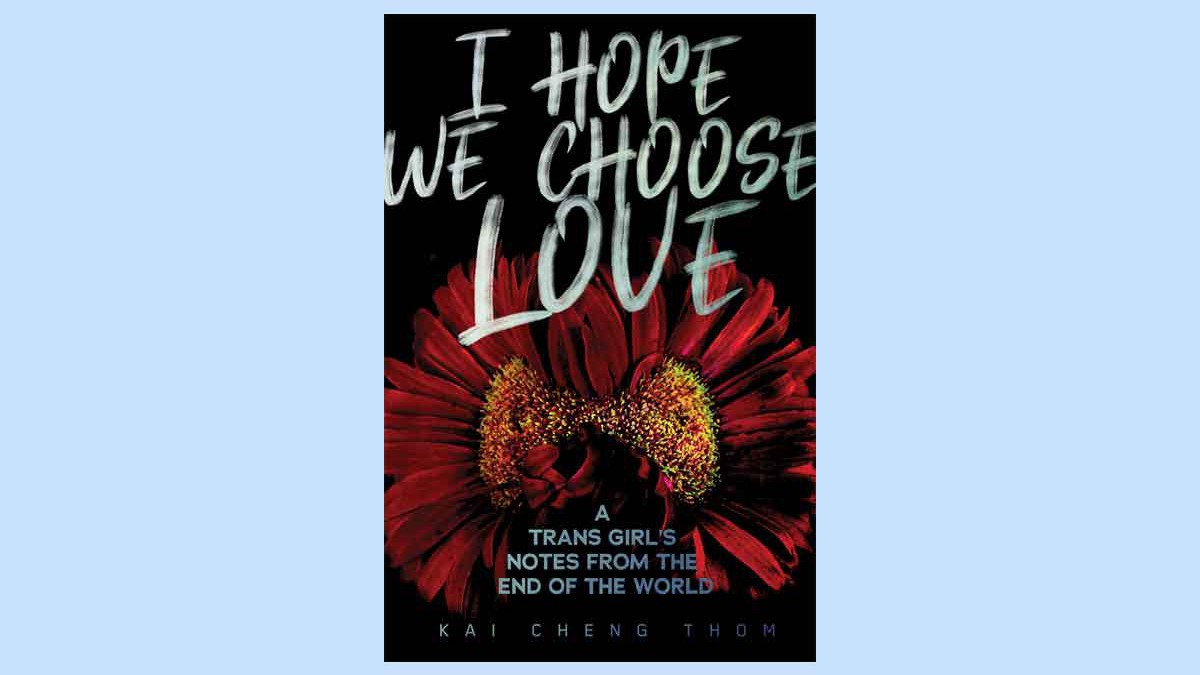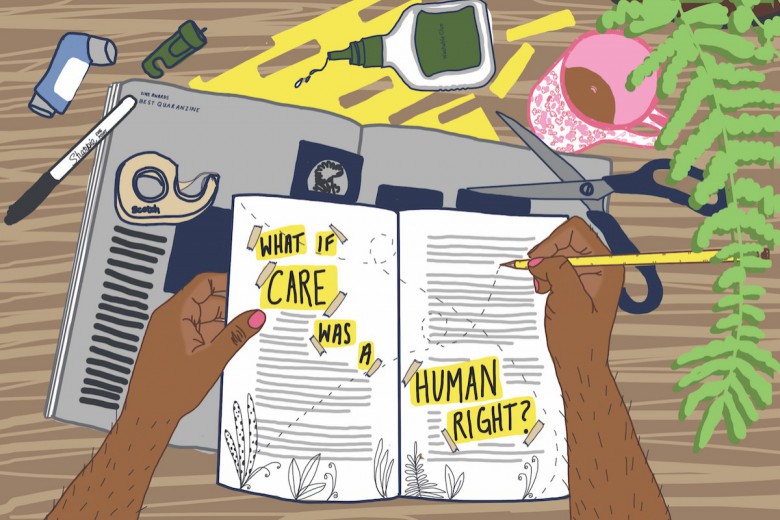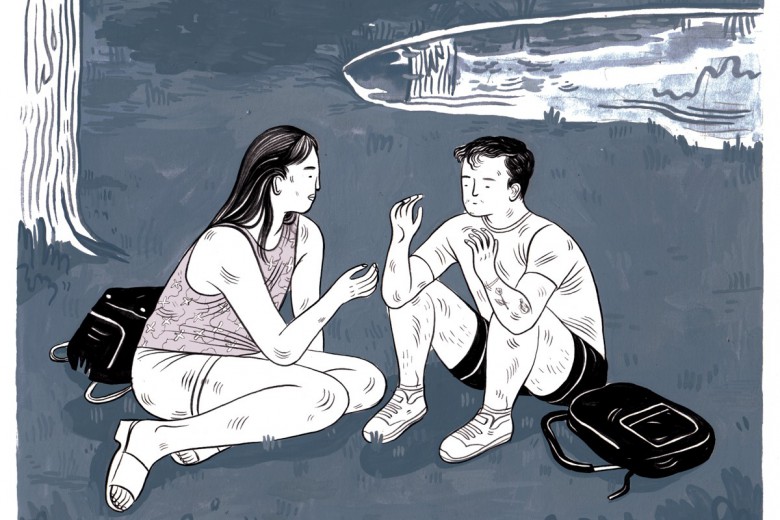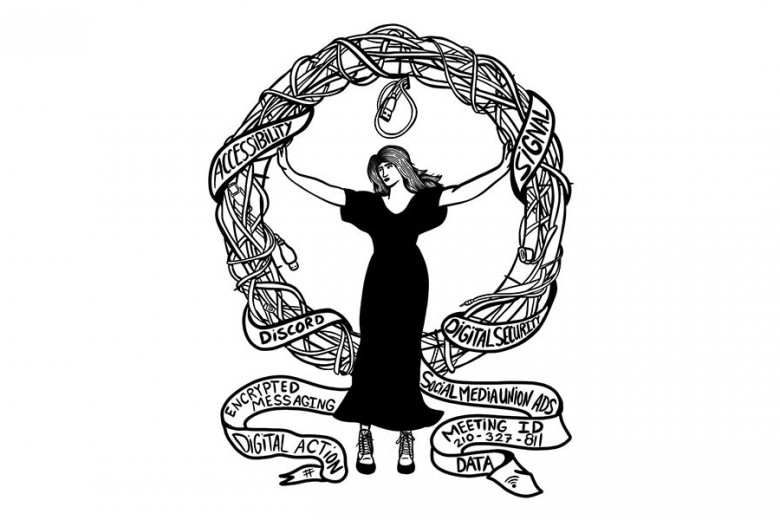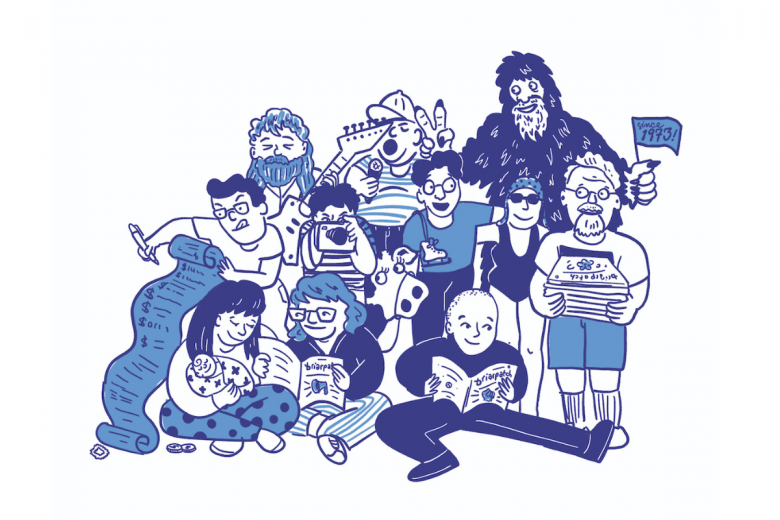last year, when i was still seeing a therapist, i told her that i wanted to do trauma work; i wanted to begin to unpack and process some of the traumatic things that have happened to me throughout my life, so that i could stop carrying them in my body, so that maybe i could start feeling better. my therapist responded by telling me that my life was too unstable, too unsafe for that kind of work. at the time, i was just about to lose another job and apartment in toronto (not for lack of trying to keep them*), and my therapist told me that it’d be ideal if i could live in one place for a while before destabilizing myself emotionally. what i needed then, and what i still need, are things that my therapist could not offer me: housing, adequate health care, freedom from persecution, liberation, love.
in I Hope We Choose Love, Kai Cheng Thom names safety as “an inherently classed, raced, and gendered experience that frequently runs the risk of being used for regressive ends – ironically, for restricting the freedoms of the vulnerable, those who are never really safe. […] When we choose safety over liberation, our movements fail.” a prime example of this would be the institution of policing, which ostensibly exists to ‘protect and serve’, but which we know from statistics and lived experience exists to protect the rich and their property. this calls to mind police tearing down tent cities across the country, for the “safety” (really, comfort) of the people who have homes nearby. who do police serve? who do they protect? what Thom is saying is that safety (or what some call securitization) is an idea born of fear – we believe we need to be kept safe because there is something we’re afraid of, or someone.
what Thom is saying is that safety (or what some call securitization) is an idea born of fear – we believe we need to be kept safe because there is something we’re afraid of, or someone.
it’s natural for us to have fear, and to want to be safe, especially in our chosen communities. i’m a queer, trans, neurodivergent, cuban migrant, and i have a lot of fear. i’m afraid of the way that people in my communities have harmed, and continue to harm each other. i have been part of driving people out of our shared spaces, because i (along with others) thought it would make us safe, and that it was our only option. but at the same time, i’m afraid that the people i love won’t survive this life, because a lot of them haven’t, and i know that this is a shared reality in marginalized communities. by driving people who have caused harm out of our spaces, i made those people less likely to survive. what i didn’t understand at the time, and what Thom lays out for us, is that it is impossible for people to be genuinely accountable to their communities, and willing to learn from and repair the harm they’ve caused, when their access to food, shelter, health care, physical safety, and community is under threat. how can we repair the harm we’ve caused when we can’t even find ourselves a place to live? we need to do both, and we can’t do it alone.
this is where Thom’s exhortation to “choose love” comes in. i know, through my work as a healer, organizer, and artist, that love is the most powerful force there is – and i know that it will set us free. i also know that just saying ‘love will set us free’ doesn’t evoke the same faith in everyone. we have to figure out what love means to us as communities, what it looks like, and how to do it honestly. choosing love needs to be about building a world in which all of our material needs are met. i believe that if everyone’s material needs were met and not threatened, that we would all be capable of moving through the harm we’ve caused and making something like amends. if we weren’t afraid to literally die, or be isolated, then it’d be a lot easier to be vulnerable. we need communities that love us, and to build those communities we need to choose love in our movements for justice and liberation.
choosing love needs to be about building a world in which all of our material needs are met.
i’m not talking about “love” in the way that liberals have co-opted and mutated the word, but “love” the verb. when i envision choosing love, i see love as radical action: it looks like accountability and reparations, a healing of the disconnects within ourselves, and between us, the land, and spirit. Thom is writing to a niche audience, people who care about care, the “radical left,” people interested in transformative or restorative justice. I Hope We Choose Love is a lament for all the possibilities and people we have lost to fear, but it also asks us to find a way out. it’s hard work, loving each other, and no one really teaches it anymore. but we need to do it anyway, because we all need the communities that Thom is writing about: spaces where we can make mistakes and learn from them, where we can be accountable and imperfect, and still loved.
*this is not to imply that anyone’s safety should ever be threatened, even if they stop trying. everyone still deserves a place to live.
author’s note: i don’t use capital letters throughout most of this text. this is part of my personal writing style and i do it for a variety of reasons: to disrupt hierarchies, decentre capital, and play with the rules of english, which is not my first language. titles and people’s names are still capitalized because i don’t alter people’s names or work without their consent.


